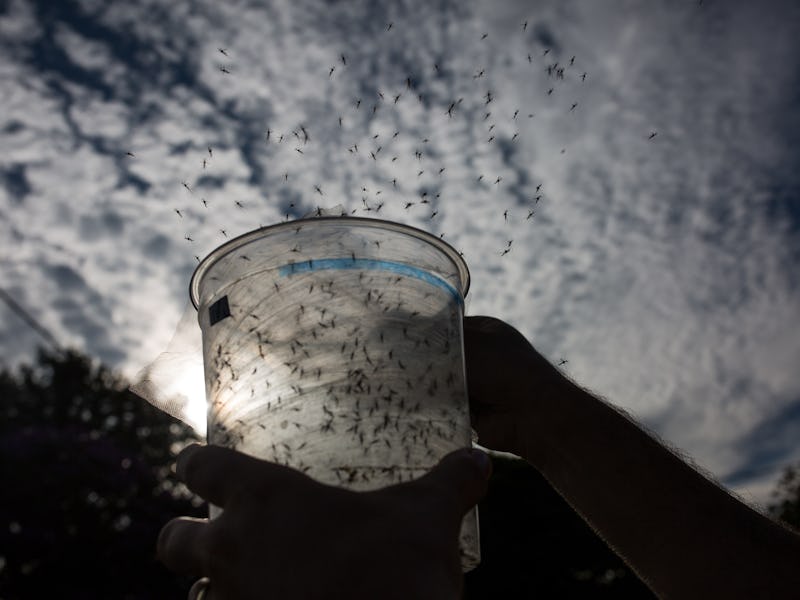Super-Infected Mosquitoes Are the New Weapon in the War on Dengue and Zika
Releasing these bacteria-filled mosquitos into the wild could curb the transmission of deadly disease.

Scientists may have developed a way to end the spread of the Zika virus and dengue fever — by pumping disease-carrying mosquitos full of bacteria. A new study published in PLoS Pathogens reports a newly developed strain of Aedes aegypti — the mosquito responsible for transmitting the Zika virus all over Latin America — that can’t transmit viruses during its intermittent human blood feasts.
Previous research has shown that when the bodies of mosquitos are infected with a bacteria called Wolbachia pipientis, the dengue virus has a particularly hard time replicating. Bites from those particular bloodsuckers are much less likely to transmit disease.
Building on this work, the team, led by researchers at Australia’s Monash University, worked to “super-infect” the mosquitos by injecting them with not one but two strains of Wolbachia, hoping the resulting mosquitos would be even less hospitable to replicating the dengue virus.
As hypothesized, dengue virus replication in super-infected mosquitos was blocked at higher rates versus mosquitos carrying only a single bacterial strain.
To boot, because both bacterial strains are passed on through females, it would be easy to create an entire swarm of super-infected mosquitos by introducing just a small population into the wild.
The added benefit to superinfection is that viruses will have a harder time developing resistance against two bacteria strains compared to only one.
Next year, the researchers plan to begin field trials with singly infected mosquitos in Indonesia, Vietnam, and Latin America. For now, they’re saving the super-infected population as a last resort — just in case viruses start to show resistance to their singly-infected relatives.
While the researchers focused only on the role of super-infected mosquitos in preventing the spread of dengue fever, they suggest their work on Wolbachia bacterium could be used to carry other diseases carried by Aedes aegypti, including chikungunya, yellow fever, and the rapidly spreading Zika virus.